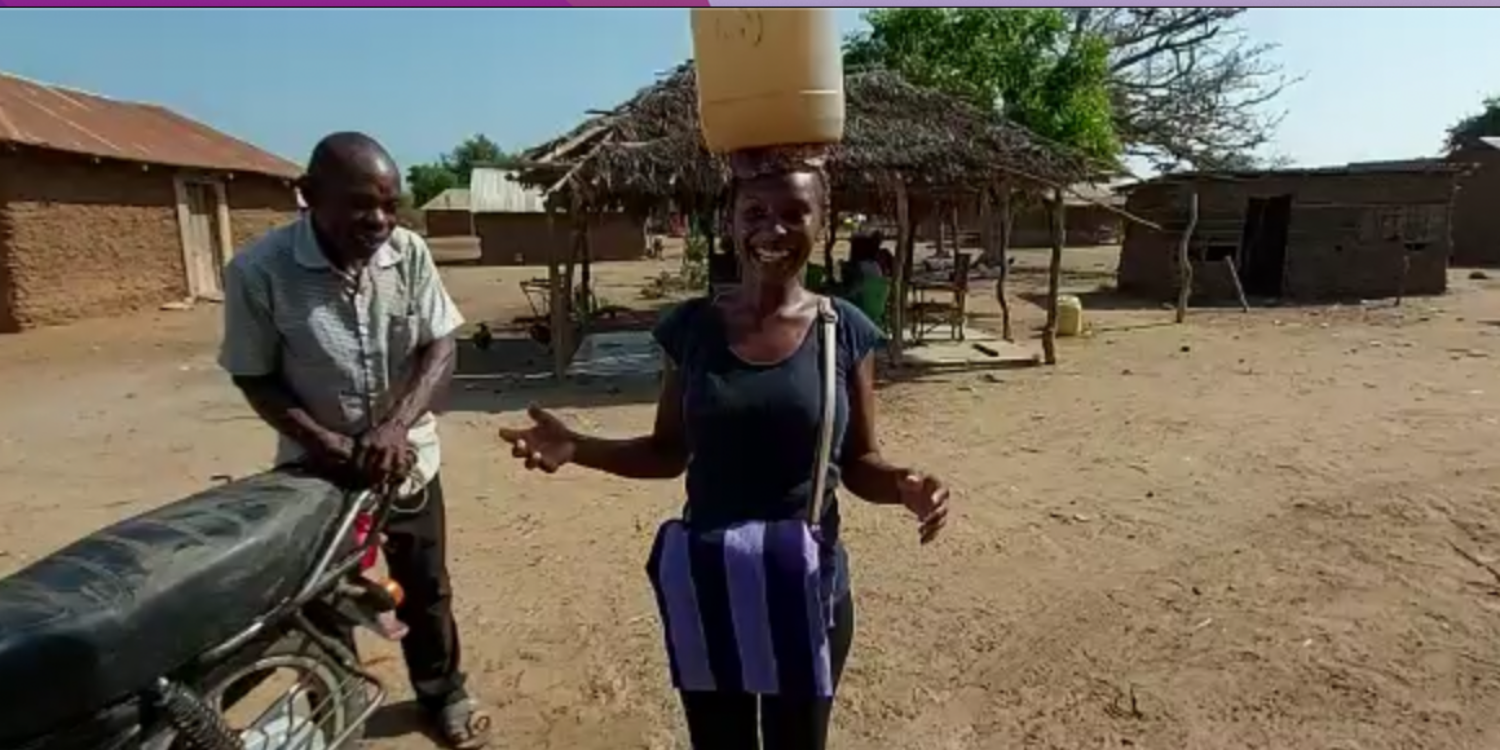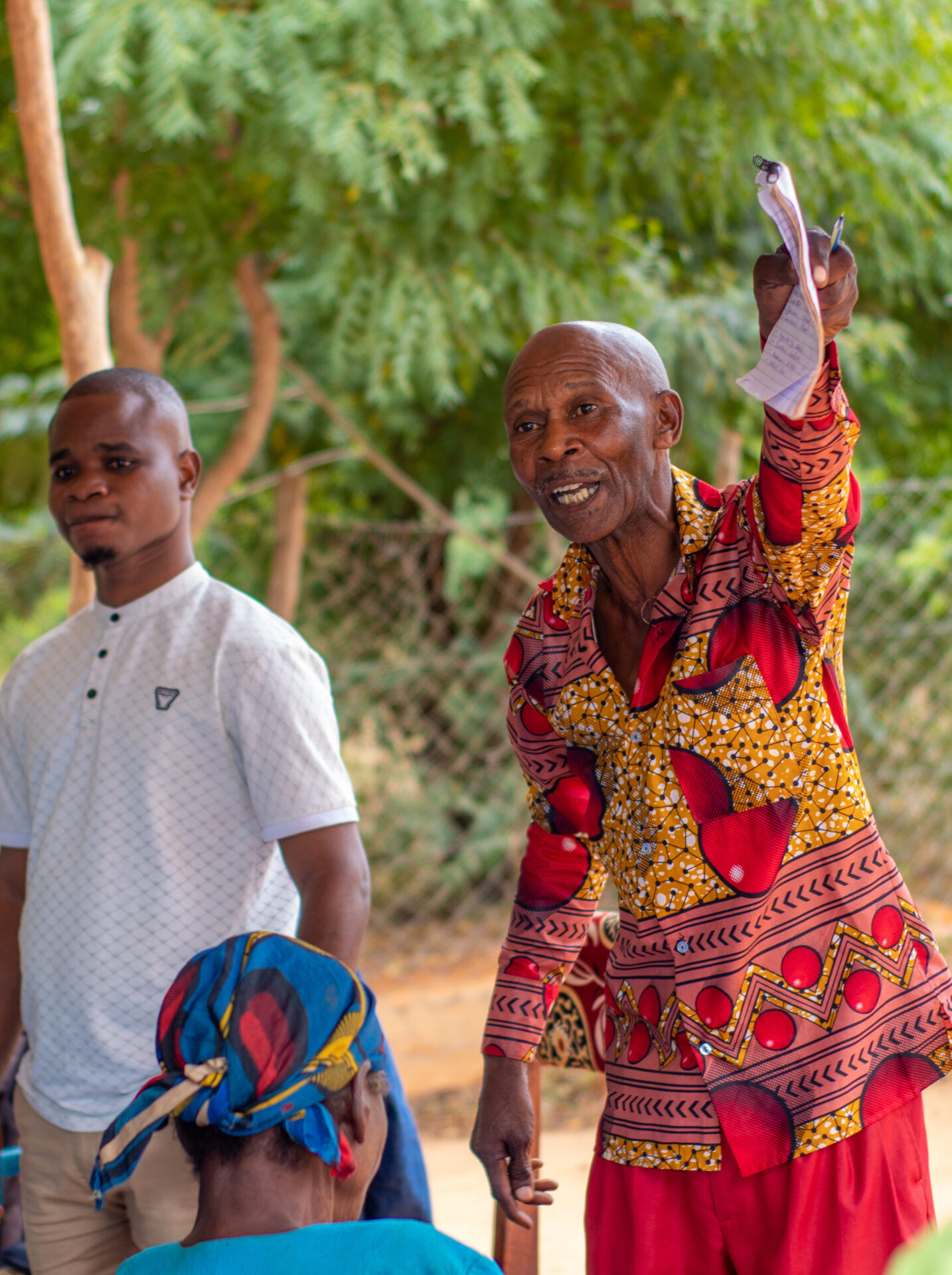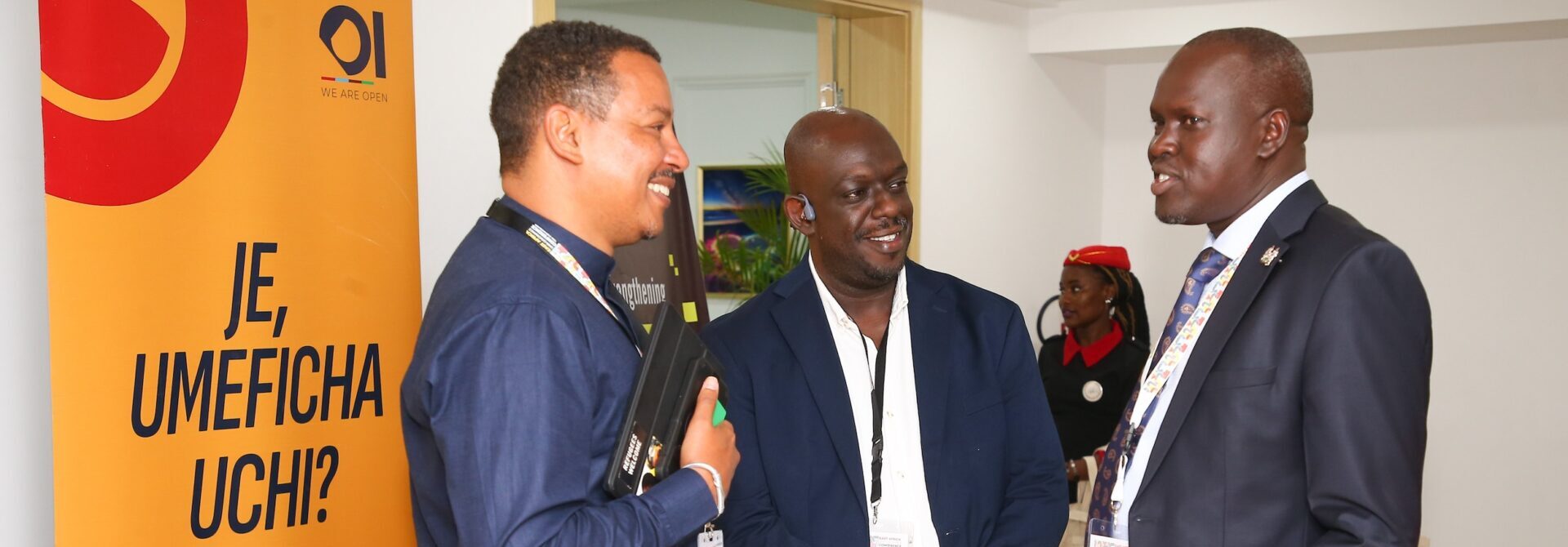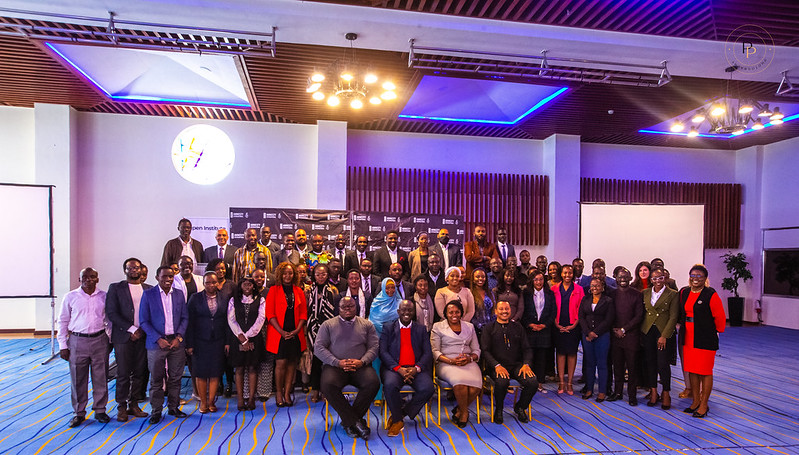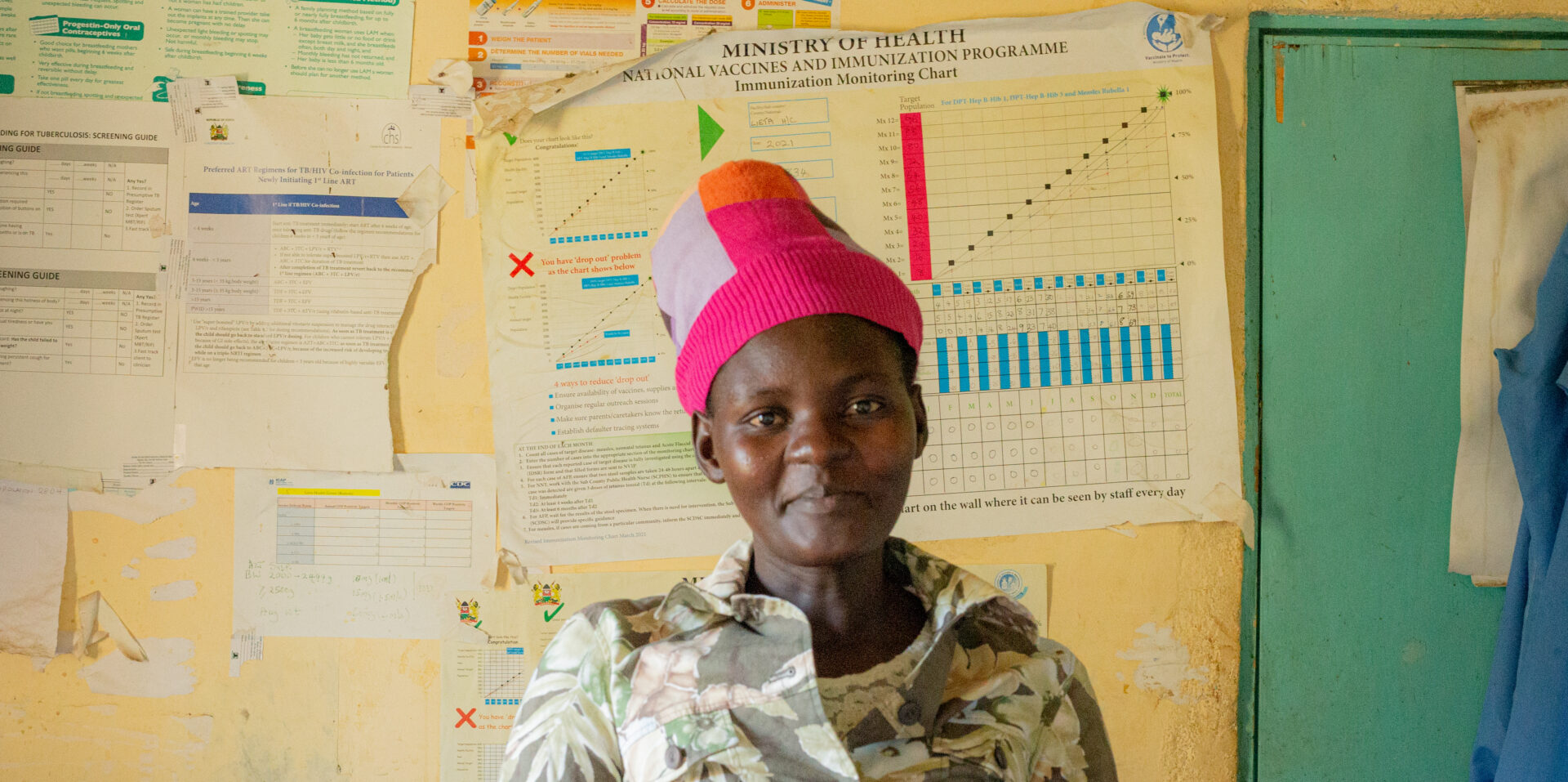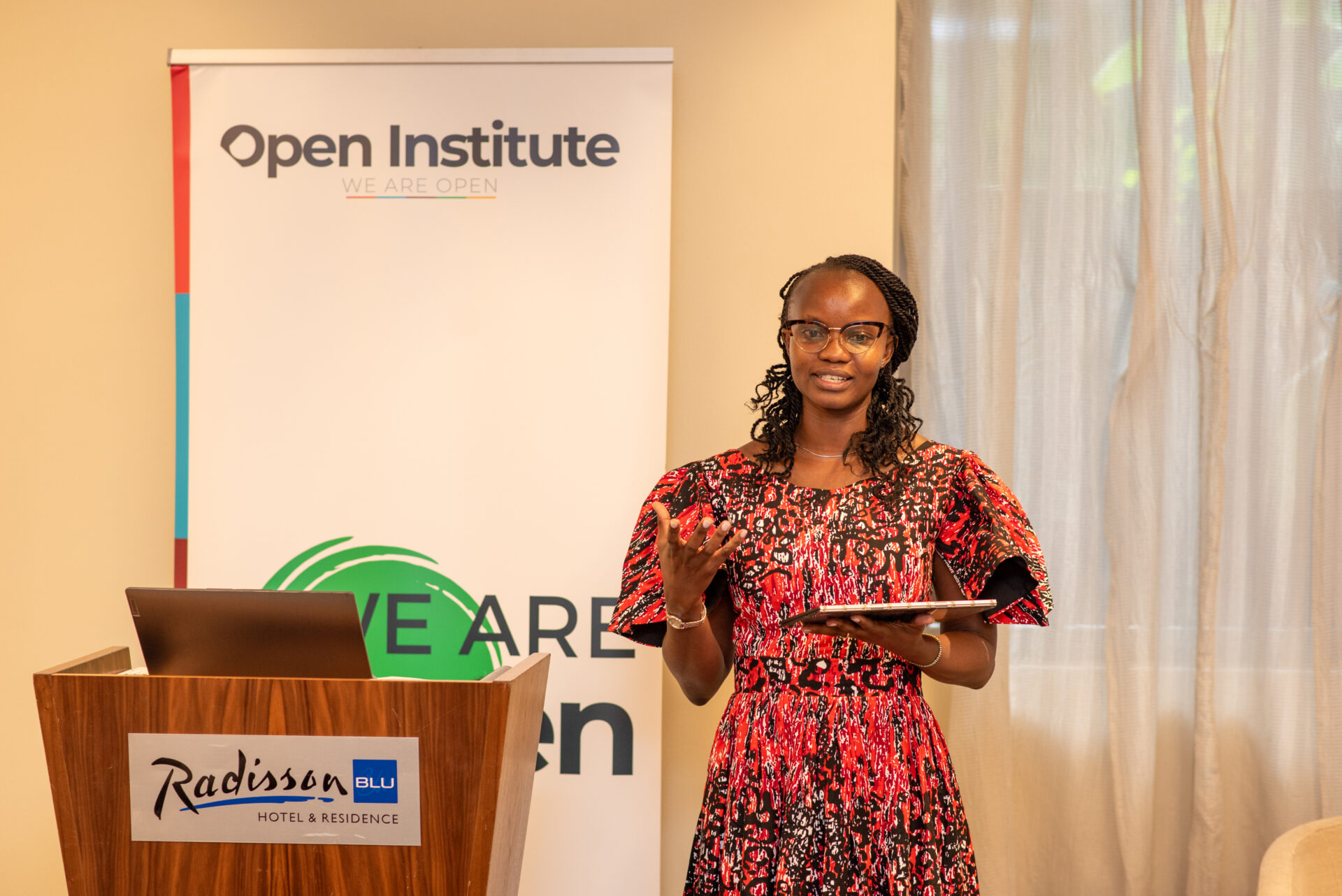The Open Institute’s Green Fellowship is given in line with our goal to shed light to “the invisibles” – those communities of people who are most left behind due to poverty, lack of functional literacy and government support.
The Open Institute is happy to announce The Open Institute Green Fellowship, a three-month-long programme in partnership with The Green Halo initiative, a nascent climate change-focused initiative founded by Angel Kyalo. Through this partnership, OI is supporting Ms Kyalo to live in villages in the greater Malindi areas of Kilifi County. During her stay with families in the remote villages of Garashi, Marafa and Dakacha, Angel will tell stories via social media about the interactions that she has with people and try to shed light on their motivations and perspectives, how they make decisions relating to their livelihoods and how those decisions affect the environment.
Garashi Village, Kilifi County, Young girls 12-14 yrs from getting water from the well. @THEGREENHALO1. #environment #SDGs this is 2022. If we can change this let's please do. pic.twitter.com/2XiwMoeIZq
— Angel Kyalo (@angelkyalo1) March 28, 2022
Why we supported this initiative
Over the past few years, we have been sharing our observations that there are people who are being left behind, largely because they are invisible to policymakers and duty bearers. We have told stories of communities on Manda Island in Lamu County where citizens like Mzee Mohamed have their property taken from them by well-heeled politicians because they do not have information. We told stories of Artisanal Small Scale Miners in Taita Taveta, Vihiga and Migori counties and how they are being left behind because of the remoteness of their work and living circumstances. This Youtube playlist features stories of some of the people we met telling their stories in their own voices (Please do subscribe!) More recently, our founder Al Kags has been blogging about some of the people that he is meeting in Kilifi county who are being left behind because they live in remote villages, almost destitute with little education, almost no exposure and reduced ability to make a living.
Our view has been that if the world is to achieve the Sustainable Development Goals, then we must take the Global Goal universal value to Leave No One Behind literally – that every person has their voice heard and that even citizens living in the remotest areas must be seen, heard and participate in their governance and development.
To this end, our goal has been to try and learn the ways that people are systematically unseen by the interventions of government and development partners and to shed light on them. We are doing this directly by talking to communities in various parts of Kenya and we are also developing partnerships with small organisations like the Green Halo Initiative that share our interest in shedding light to people that are unseen by duty bearers and policymakers.
The Green Halo Initiative is a personal initiative by Angel Kyalo, a young Public Relations and Communications Student who is passionate about advocating for better environmental practices to combat climate change. The initiative is driven to sensitize communities on how their everyday decisions impact the environment, and how in turn, climate change impacts their ability to make better lives for themselves. The most powerful way to combat climate change is through personal initiative. The decisions that people make at a personal level, whether it is by cutting trees to sell charcoal or buying and using single-use plastic have a direct impact on the environment.
What we hope the fellowship will achieve
Kilifi in the north coast of Kenya is a semi-arid county that has seen significant environmental changes in the past 2 decades or so. One of the major contributors to this change has been charcoal burning for economic gain. A well-reported example is the Dakacha Woodland Forest which has been decimated as locals have cut down indigenous trees for charcoal as a means of survival. As a result, in recent years, the county has experienced prolonged and progressively more severe cases of drought.
Despite the ban on charcoal by the government, it is still common to see bicycles and motorcycles laden with bags of charcoal, coming from the Dakacha Woodland Forest, the Marafa and Magarini areas to Malindi town for sale. Numerous news reports, like this one or this one, have shown that people have difficulty observing the ban despite the risk to their freedom because they depend on charcoal to live.
A cursory review of the issue reveals that it is a vicious cycle. The villagers depend on rainfall to grow food. When the rains fail, they cut trees and burn charcoal to survive. In turn, the land is left bare and the weather conditions get progressively worse.
Angel hopes to learn more about the business of charcoal burning and how it impacts the family lives of the communities there. Her goal is that based on the knowledge that is acquired, programmes can better be designed to sensitize the community on the environment as well as to identify alternative opportunities for livelihoods so that the community can take different actions to survive and save the planet.
As she is doing this work, we hope to make better observations about the ways that livelihood decisions come in the way of citizen participation and engagement.

